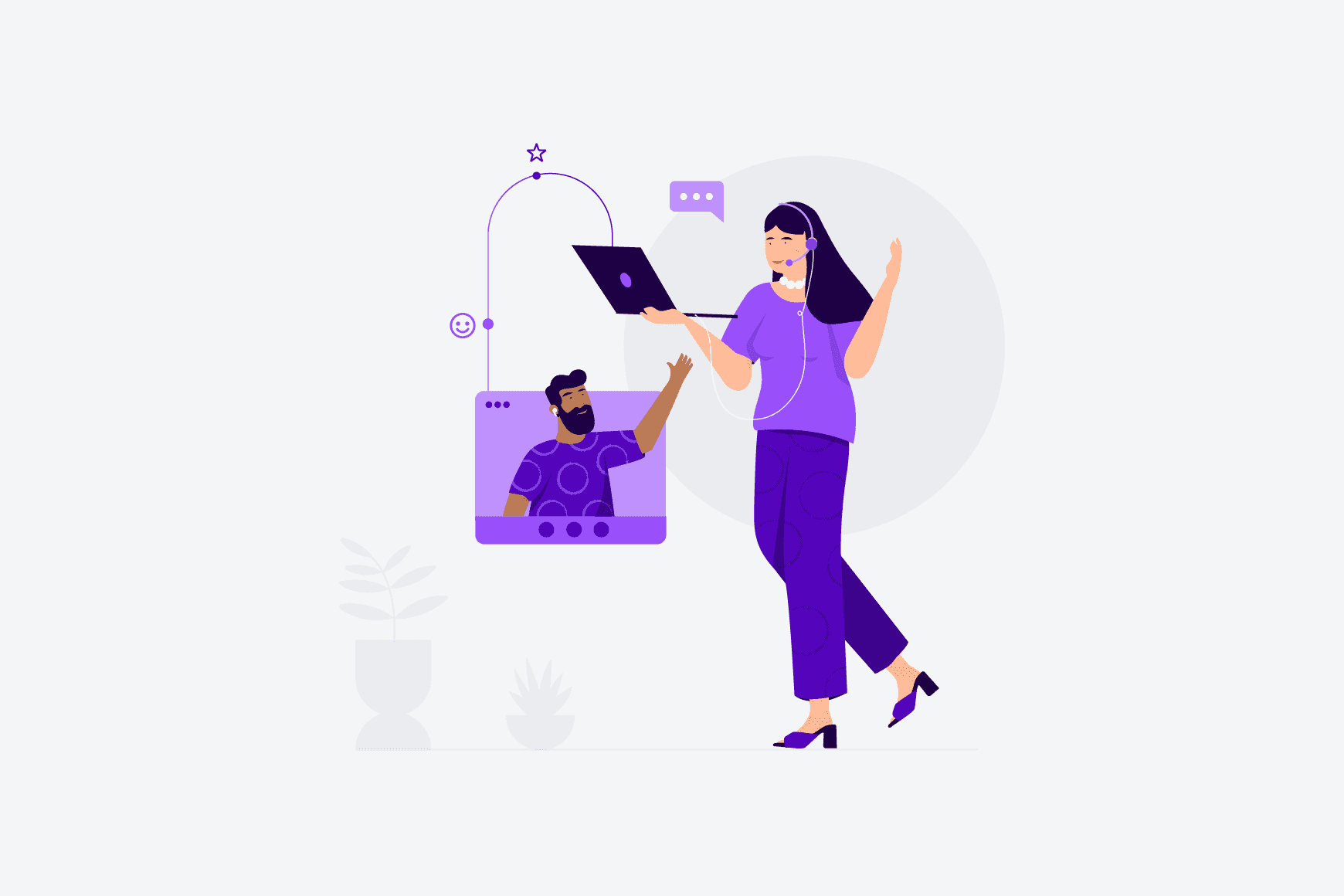Contact center technology’s effect on agent training

By Marta Lima
0 min read

Empowering agents to be the best at their job—and experts at using contact center technology—is the key to exceeding contact center KPIs, working fast and cost-effectively, and providing the support customers need.
The most successful call centers—those that best reflect your brand and deliver delightful and seamless experiences—start with the best training. Information and communication technologies (ICT) are revolutionizing not only the way agents work and interact with customers, but also their training.
From artificial intelligence (AI) to machine learning—technology plays a major part in call center productivity and has been transforming the industry over the last decade. Increased customer satisfaction and higher brand loyalty due to personalization, shorter waiting times, and first contact resolution are just some of the benefits we can mention. But keeping up with the latest technology is not all it takes to achieve outstanding key performance indicators (KPIs).
The use of advanced ICT requires agents to have additional technical skills to handle contact center software and adequately perform their job. To ensure that agents are capable of leveraging the most recent technology to deliver a better and more efficient CX—and that they feel confident using this technology—contact center managers are making training a priority.
In order to develop a training protocol that is cost-effective, efficient, and has the most impact on the capabilities of the agent, managers must understand the relationship between ICT and call center agent training.
3 technologies that are transforming call center agent training.
The evolution of ICT has a major impact on call center training—namely on the uprise of investment of time and money on agent training—but specific technologies have different effects on training demands. Learn how each of the main three contact center technologies is impacting agents’ training:
1. Interaction automation technologies.
Interaction automation technologies (such as IVR, speech recognition technologies, virtual agents, or voice and chatbots) automate customer interactions in the contact center. They highly benefit customer support in contact centers, working as a self-service tool that performs simple operations without the need for human intervention—simplifying the workload of human agents, reducing the operational costs, and offering a fast, efficient, and autonomous resolution for customer issues.
Use roleplaying, media support guides (such as ebooks and demonstration videos), and practice with your agents real-life use cases in which this technology is used. Train your agents with practical tools such as Talkdesk Academy™, a platform with free training courses that can help expand opportunities and grow your agent’s career. It develops agents’ skills through tips, techniques, and prescriptive training with the Talkdesk® CX Cloud™ contact center platform. It’s the perfect way to learn how to use contact center software by actually testing it in real-life use cases. It has a set of available courses—for onboarding and for career journey—and certifications for agents, administrators, and supervisors.

2. Workflow automation technologies.
Automated workflows help agents and managers to accomplish more tasks, more accurately, in less time. Here are some examples of automated workflows:
- At the end of a call, create a helpdesk ticket.
- If a call is missed, send an email to the sales manager.
- When creating a new contact in your call center software, create one in your customer relationship management (CRM) system.
- When a voicemail is left, create a helpdesk ticket.
Automated workflow features reduce errors and after-call work by automating follow-up tasks—particularly those that require updating databases. It saves the agents’ time and allows them to focus on the customers and in addressing them proactively.
By automating after-call tasks and others you can redirect your training into more complex issues and train your agents with the necessary technical and soft skills to handle harder inquiries.

3. Enhanced interaction technologies.
When we talk about enhanced interaction technologies, we are talking about specific features that make customer-agent interactions smoother, easier, and more effective. Speech and text analytics analyze customer interactions across several contact channels and find key moments, topics, customer intents, and sentiments to offer agents insights to create the next best action and more frictionless customer experiences and seize upsell opportunities.
This type of technology is particularly interesting for agent training. Supervisors can leverage AI-powered insights of voice and text interactions to evaluate the agent’s performance and detect any issues that might be impacting their interactions—and spot every opportunity to elevate CX.
Talkdesk Quality Management™ empowers supervisors to evaluate agent interactions, identify key areas of improvement, and provide agents with the actionable feedback they need to deliver exceptional customer experiences. It tracks individual and team performance with accessible metrics that can easily be exported into other systems and reinforces positive behavior and reward progress through gamification and social recognition.

To wrap up.
AI and automation technologies are transforming the way we interact every day— and the contact center is no exception. AI technologies allow contact centers to be available 24/7, address customer issues in a blink of an eye, and deliver a much more rich and complete CX. But it doesn’t replace human agents—it empowers them to do their job faster, more effectively, and with extra confidence. To seize the potential of ICT in the contact center your should support your workforce with the tools and guidance they need to succeed every step of the way and make sure they are aligned with your contact center strategy. If you’re looking to improve your contact center training strategy, you might want to:
- Explore how training contact center agents and supervisors, on AI models and empowering tools like chatbots, virtual agents, and agent assistants can take your CX to the next level.
- Get a deeper insight into how automation tools improve the customer experience.
- Learn more about Talkdesk Workforce Engagement Management™—an integrated suite of intelligent, intuitive solutions to help you manage, develop, and engage your agents throughout the employee lifecycle.






